An Investment Philosophy To Prepare For Possible Future Opportunities In Real Estate With Ken McElroy
Podcast: Play in new window | Download
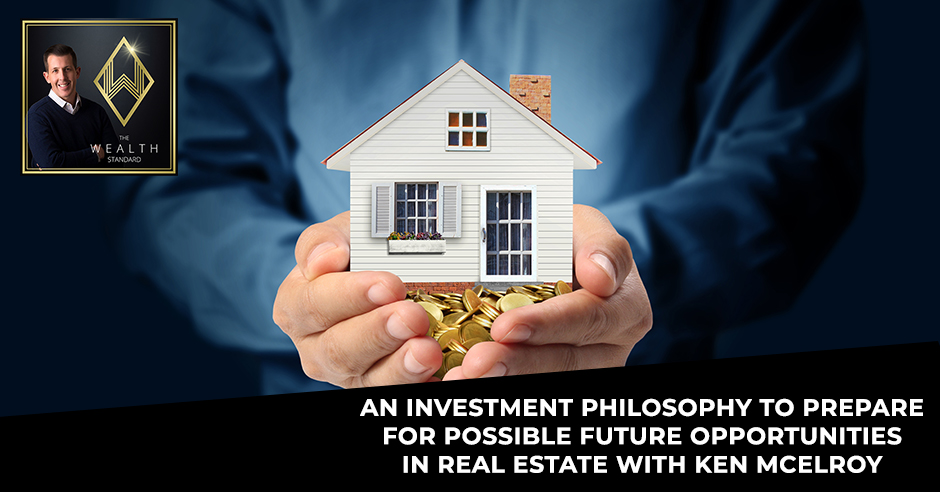
The real estate market is already unpredictable as it is. Yet, with the current COVID-19 pandemic we are all facing, this unpredictability is heightened, and you can either succumb to it or find opportunities. Patrick Donohoe is joined by Ken McElroy, the Principal of MC Companies, who has a couple of insights into possible future opportunities in the real estate market that you can take hold of. Guiding us in that process, he shares his investment philosophy around buying for cash flow and generating passive income. He then dives deep into some of the significant shifts happening, the obstacles newer investors typically see, and how they can start developing the mindset to have the confidence to take their first step. Join Ken and Patrick in this episode as they help us prepare for the future, uncertain as it may.
—
Watch the episode here:
Listen to the podcast here:
An Investment Philosophy To Prepare For Possible Future Opportunities In Real Estate With Ken McElroy
I have an incredible guest, a dear friend of mine, Ken McElroy. Ken and I had an interview that lasted over an hour. We are breaking the show into two parts. The first part is going to be his investment philosophy, as well as the current state of the real estate market, and then part two is going to be a discussion we had about the economy. If you don’t know who Ken McElroy is, Kenny is first a real estate investor. He’s written a number of books on the subject. He’s been an investor for over three decades. He also is a Rich Dad Advisor. What that means is he works alongside Robert Kiyosaki, who is the author of Rich Dad Poor Dad. Kenny has developed a giving attitude over the years. He was born with it but he is doing so much on YouTube. He has a ton of digital resources that you can get access to at KenMcElroy.com.
Kenny also has a podcast that he does. Go check him out even if you don’t go in and take advantage of some of his digital resources. This is a guy that you definitely want to follow. He’s done billions of dollars of real estate, tens of thousands of doors, and has an incredible philosophy when it comes to how he invests. I think that’s important because we’re at the crossroads of many different elements, whether it’s housing, economy, unemployment, government intervention, possible inflation, most likely inflation. It’s going to stir up emotions for those that don’t necessarily have a sound investment philosophy.
We’ve already seen that with the number of people that have lost money on trading different things. We’ve spoken on the show extensively about that. It’s going to continue and most likely amplify. There are two things that are going to happen. You can either succumb to these emotional whims and make bad decisions or you can find the opportunities which will be there in spades. Kenny drops a couple of insightful things when it comes to possible future opportunities in the real estate market, so pay close attention. Thank you so much for the support. I appreciate you. Let’s get into my part one of the interviews with Ken McElroy.
—
Thanks for joining me on this incredible interview. That’s somewhat presumptuous but I know Kenny. I’ve known him for a while. He’s a mountain of knowledge. I’m grateful for the opportunity for you to learn. I’m excited to learn as well. Ken McElroy, I have a bunch of your books here. You never stop writing these books. One that came out is ABCs of Buying Rental Property. You’ve got ABCs of Real Estate Investing. There’s a bunch of others too but you’ve written extensively about real estate and also entrepreneurship. I’m excited to have you on. There’s a lot going on in the world and 90% of it has to do with real estate. I can’t wait to learn from you. We had you on 2020 and things were chaotic. I’m curious to see where things are at from your vantage point.
Thanks, Patrick. It’s always great to catch up with you. I love your stuff. I love following your investment philosophies. I know we’ve been friends a while. I adore your family. Let’s get to it. Let’s talk about what we see in our crystal ball.
Buy for cashflow. Click To TweetLet’s start there. It’d be important for you to take a moment and describe your investment philosophy, how you view investments, purpose, good investment, bad investment.
We’ll talk real time, the GameStop thing, it’s still a buzz, how that happened, what happened, and all of that. That’s what I don’t like to do. I’m not saying that people didn’t make money but I know people lost money. In my opinion, that’s a bit of gambling. That’s throwing your money into something and hoping that it goes up. That’s not at all what I do. That’s what we would call a capital gain strategy. That’s flipping a house although that would take a lot longer. Buying something, hoping the market takes it up, and then selling it. I’m not saying that you can’t make money that way but what I’m saying is that we don’t know what’s going to happen. You don’t know if the market is going to crash or it’s going to keep going. People have strong opinions, however, on that. That’s what gets them in trouble.
What I like to do is I like to buy it for cashflow. All of my deals, Patrick, as you know, are cashflow based. I don’t have an exit philosophy. In other words, I’m not trying to time anything. What I’m trying to do is buy an asset. I’m trying to use other people’s money to buy it, the bank or investors. I’m trying to make cashflow so that everyone gets paid. I want the occupants, the tenants, the residents, or whatever you want to call them to pay it off. I want the tax consequences from that and I want to hold it. It’s a lot slower strategy. It’s a lot harder. It takes a lot more knowledge. You have to have a lot of experience to do it well. That’s my philosophy. It’s proven to be a good one. When you can get a tenant to pay off your asset, why wouldn’t you? That’s it in a nutshell.
Adding to that, you have some predominant investment purposes. People invest for capital gains or people invest for income, for cashflow. I look at the end result being unknown to most people. They don’t ask themselves, “Why am I doing this? Why am I doing that?” If you look at income, if you look at cashflow that produces month in and month out, that impacts what people were after, which is a better lifestyle. Capital gain is a short-term strategy and also it has a lot more risks associated with it. In the end, if people question their motives and their purpose, they would think twice about putting a lion’s share of their wealth into that type of strategy.

Real Estate Future Opportunities: Not all experiments work out. Not all bets work out. Not all risks work out. If you have that foundation of certainty, you learn from it as opposed to being taken out of the game.
It’s interesting if you take it in bite size. What I did in my first thing, Robert calls the financial freedom. He branded it. When I was getting out of university, that was my first thought. At the time my expenses were super low like $2,000 or $3,000 a month or something. I was like, “How do I cover that with cashflowing assets?” From there, that would be my first step at financial freedom. Like most people, I started buying bigger houses and better cars. I was driving an old Volkswagen when I was in college. There are things that you want to help the business and all that. Your monthly expenses do go up but my philosophy never did, which is how do I generate enough passive income to cover my monthly expenses?
When that happened, Patrick, everything changed. All of a sudden, I was like, “I can do deals that I want to do. There’s no real pressure on me. My bills are covered. What do I want to do next?” That’s when I started to build my business and start to create other streams of income like that. That’s all I do. I have all this passive income and the deals keep getting bigger and bigger. My core philosophy is first it was me, how do I become financially free, then it was my company. How do I generate enough passive income in my company to make it financially free so I don’t have to be there? My philosophy has been the same the whole time. The cashflow philosophy covering your expenses so that you can take months off. When my kids were in spring break, fall break, summer break, I took that time off period. I never worked during those periods of time and that was because of this philosophy. I had money coming in.
Whether it’s Abraham Maslow or other sociologists, psychologists, they’ve narrowed in on this motivation of human beings. I think some of the first motivations that people are after is certainty. They want some foundation that they can count on. Capital gain is not that strategy. Cashflow is, especially if education around developing that. When you start to establish those foundations of certainty, then risk or uncertainty, the variety of life, going on vacation, buying a car, trying this with business, trying that with business, it becomes more digestible, especially given the fact that not all experiments work out, not all bets work out, not all risks work out. If you have that foundation of certainty, you learn from it as opposed to be taken out of the game from it.
A lot of people work their whole lives for that certainty but end up selling future certainty by putting their money on 401ks or IRAs. Click To TweetI think a lot of people work their whole lives for that certainty. They do it differently. They put their money on 401(k)s or IRAs or having their money over to wealth managers. That is the whole point. The whole point is that’s what they’re selling is they’re selling future certainty. I decided that I didn’t want to hand that off to other people. I wanted to do it myself. I wanted to learn myself. Also, if I did do that or I ever had to do that or I wanted to do that, I wanted to know what to ask them, what to say, and let them articulate the reasons. Maybe I can learn from them or maybe I could teach them. I never understood the philosophy of working your butt off and hand in your money over to somebody for the rest of your life and then meet with them once a year. That didn’t make any sense to me.
It’s a mirage of certainty. It’s a future promise that not many people are able to get to materialize. Let’s move on from that. I think we beat that dead horse. Let’s end with something that you did in 2020. I started seeing you on social media wearing this Be Infinite shirt. I thought that was intriguing. I bought one. I wear it often. I went into jeans and a long sleeve black t-shirt every day, except for my Be Infinite t-shirts. That’s my new attire because no one’s in the office anymore. Describe how that came to be and what that has to do with your philosophy.
It started with my Infinite Return. I’m working on a book called Infinite Return, which is basically how do you invest a bunch of money, get it back tax-free, still own the property or the asset, not have any money in it, and how does it continue to produce cashflow when you don’t have any physical investments. That’s called an infinite return when you create something from nothing or you use somebody else’s money and then you give it back to them. You still own it and it produces a long-term annuity. That’s how it started. I bought the domain name The Infinite and we started rebranding it. What happened is it took off. The infinite doesn’t have to just mean financial. It could be the mindset and all these things. It’s a work in progress. I’m not completely done with it yet but we are going to roll something out.
It’s infinite so you can never be done with it.
It’s been fun to listen and weigh into other people. A lot of the people that follow me send some cool stuff about how they became infinite. It’s not a financial thing as I learned. I started off that way but I’ve opened my mind up to. It applies to a lot of things. It could be in your relationships, in your mindset, in your health, in your finances. That’s where it’s heading and you stay tuned on that one. I still am going to do the book Infinite Return, which is more about real estate but I’m excited about where that’s headed.
If you are reading and want to pick up your Be Infinite shirts, go to TheWealthStandard.com. Kenny is also going to talk about some online digital resources he has for you. Let’s move on to real estate and what’s going on. There are some significant shifts happening. Sometimes that takes people out of the mindset where they feel comfortable making an investment. Talk about the obstacles you typically see with newer investors, why they don’t pull the trigger, and then how they can start to develop the mindset where they have the confidence to take that first step.

Real Estate Future Opportunities: If you can zoom, why not zoom?
First of all, I want to acknowledge how hard it is to go from working somewhere hard and then trying to wrap your head around something so different. It is different. I totally get it. I call it analysis paralysis. They sit and they don’t want to make a mistake. I completely get that. There’s a lot of anxiety, stress and fear beyond that. I will tell you that what I find is if you’re open a little bit to the idea, then you can look at things. If I’m sitting at dinner with the stock guy, he’s fully against real estate. That’s the way it is. There are not many stock guys that are real estate advocates. There’s a financial reason. They get commissions and all that stuff. I’m not saying that it’s wrong to be a stock guy. I’m saying they’re close-minded in their bias. The hardest part is being biased. Let’s say you grew up poor like I did and my parents were poor. They would always say, “We can’t afford that,” and we couldn’t, all those things. You’ve got to get out of your way as I found.
The first step is backing up from the scenario and saying, “I’m in a bad relationship. Why? I’m in a bad financial situation. Why? I’m not happy at my job. Why?” People don’t do that. What they do is they point fingers out and they go, “It’s their fault. It’s somebody else. How can it be me?” You don’t have to tell everybody. You have to do it. You can start to open your mind a little bit about, “Maybe I am a little bit biased.” We all have biases. It’s interesting. It’s a long story but I had to go through a bunch of bias training to be on the Sheriff’s posse for Arizona. It was fascinating. I was in the room with all these County Sheriffs. It was all over this whole issue between Mexico, the US, and all that. That’s fascinating, the biases. I was like, “I have my own biases the way I grew up. I have biases around money. I have biases around all things.”
Once you can step back from that and peel that back and say, “Where do I want to be?” I love that be, do, have. You want to have, you have to be. First, you have to be. I think people struggle with that. They hold on tight to their beliefs and they don’t believe that they are. It could be religion too. I don’t want to make this political or religious but the point is that people have their beliefs and that is what it is. They defend them. It’s the same thing with real estate once people realize. There are millions of people making money in real estate and there are billions of people doing well in real estate. As you know, you do both. You have to have an open mind first and then start letting new stuff in. There are tax advantages. We’re heading into a renter nation, Patrick, as you know. How can you have 3.5 million people in mortgage forbearance or another 10 million to 20 million people facing eviction and not have a rental issue?
Also, defaults on debt. It takes them out of the credit game because they can’t qualify for it.
It’s acknowledging live birth. How many people are going to turn 50? We already know the number. Everybody knows it’s data. We have this data that shows that the next couple of years are going to be rough. We’re going to turn like in 2008, 2009 and 2010, which I was involved in. People have to rent more. It will swing back to homeownership like it always does. At the moment, there’s going to be massive pressure on the rental housing market because there’s going to be way more demand than there is supply.
If you stepped back from it instead of saying, “I’m a stock person.” My brother is a great example, by the way. He was the A-student in our house. He is very bright. I have a tremendous amount of respect for him. When he retired, I asked him, “How are you doing?” He’s like, “I don’t know. I haven’t even went down.” I go, “You don’t even know.” “No, I trust them.” That is the marketing behind it all. I’m his brother. We’re together all the time. We talk all the time. I’m over here building this massive real estate portfolio. He doesn’t even ask a question.
There are some primary fears that people have. One is having to change and two is being wrong. We don’t realize it until we’re arguing politically, arguing religiously. Those fears dominate us whether we want to believe it or not. I think real estate being is something different than what people are programmed and conditioned to believe is investment and where they should put their money and what that means. It’s different. At the same time, look at how the world is evolving in every capacity, transportation, entertainment, work. It’s always evolving. It’s always changing. It’s like you have these two poles. You have the pole because things are changing and you have to adapt. This pole is the one that stays the same. It’s not surprising. That’s where those obstacles are mental at the same time. You run numbers, read books, have an open mind. Real estate purchasing it the right way is infinitely less risky than what people are typically doing.
I’ll tell you a funny story. I’ve had drivers for a long time. Way before Uber, I had this guy Ted. I love Ted. He was my driver. He would take me to the airport and pick me. I was going to go out and have a couple of drinks. He would come and get me, and dropped me off. I was going to go to sporting events. I had him on a contract. I was in San Francisco, which is one of the areas that they started Uber. They piloted it. I don’t know if you remember. I’m like, “This is the greatest thing ever.” I leave Uber and come back to Phoenix. Ted picks me up. I’m like, “Ted, you need to take a look at this Uber thing.” He said, “There’s no way. Nobody’s ever going to use that service.” That’s my point. I never forgot that because I was like, “Sure enough, Ted is out of business.” People can call a black car and get it whenever they want. They don’t have to have anything like that. It’s easy. That’s my point, whether it’s my brother, my parents. It doesn’t matter. They have these fixed mindsets on where they are. I think that’s the first thing. People can shake that.
Kenny, we’re in the middle of massive disruption. I think we were already going in that direction. You came out here a couple of years ago and we’re going up skiing. We drove around the city and I was pointing out all these apartment buildings that we were going up. It’s everywhere. It’s city blocks coming down, ripping down old buildings, putting up these masks and it continues. COVID was one of those other massive shocks to the system. How do you explain the impact that 2020 had on the real estate market? What’s going to be happening in the near future because of it?
There's going to be massive pressure on the rental housing market because there's going to be way more demand than there is supply. Click To TweetThere are a couple of things. I don’t think we’ve seen yet the impact. The government said, “Everybody go home and shut down.” We can go on and on about that, states, cities, towns, mayors and governors. The bottom line is that the government threw a whole bunch of money at this issue and they needed to, stimulus unemployment, PPE, EIDL, forbearance, eviction moratorium and all those things. That has masked, in my opinion, the whole problem. Look at the facts. We have ten million more people still unemployed or somewhere in there. We have 3.5 to 4 million people in forbearance. About three million of those people are seriously delinquent. We have anywhere from maybe fifteen million people facing some eviction. They keep kicking the can down the road.
By the way, I’m a landlord. I believe they should. You can’t tell people they can’t go to work and then have the backside of it. The problem is the landlords are having problems, a lot of the small landlords. There are cracks showing up. There are people behind on their rent. There are people behind on their mortgages. There are people that have lost their businesses forever. They have lost their life savings forever. There are over 100,000 businesses that have shut down. The cities are going to lose their tax revenues. It’s going to be a mess for years. All of that has been propped up by this money. I know we’ll get to that at some point. I don’t think that it’s shown up yet but it’s all sitting there.
The question is, when is the government going to stop backstopping all that? I thought it would be earlier but with Biden coming in and the new administration kicking down the road a little bit longer. It’s there. There are real people behind that. There were landlords that can’t pay their mortgages. There are real people that can’t afford their cars, real people that can’t afford their rent, real people that can’t afford all things that they may be financed. All of that is going to make its way. I think businesses have changed the way they do business a lot. You’re going to have massive issues on the office building side. All the malls are done. We’re going to have a different economy moving forward. I don’t think that we’ve yet seen the issue. Revenues are down. Rents are down. Returns are down. Not with everything but businesses are closing. People are losing money. The mainstream media doesn’t seem to be talking much about that but it is there. I made a prediction in a video that had come out. I think that the fourth quarter of 2021 is going to be exposed a lot but 2022 is going to be rough.
I understand the objective of what the government tried to stimulate. At the same time, when you do that, there’s always the benefit that you get from it but there’s also the unintended consequence. It’ll be interesting to see how those unintended consequences play out. This might be important to talk about the migratory patterns of employees but also states that have high taxes, maybe even states that were little too strict on their protocols when it came to the quarantine. Talk about that because not only do we have this massive stimulus that has not only conditioned people psychologically to look to the government to help solve their problems, but you also have massive amounts of resources, money that has gone into not necessarily the most productive areas to stimulate. It’s more to fill the void but the hole is still there and continuing to drain. Talk about how COVID has impacted cities, what people being able to work remotely, how they’re going about moving from state to state. Speak to that. I know there’s a lot going on there.
In every city, state, and town is a little bit different. I had a conversation with a guy. He was on the 35th floor of a building in New York City. I was chatting with him. He’s a finance guy. We were talking about some debt and equity. I said, “What’s it like there?” I’ve talked to other people there as well. He said, “Our building normally has 5,000 to 8,000 people a day coming and going. The New York Times did an article on our building. They came and interviewed the door people and it’s about 100 a day. The hot dog guy out front usually sells about 400 hot dogs a day in the corner. They interviewed him and he’s doing ten.” I know I’m in New York but the point is this is going on in a lot, Seattle, San Francisco. Not in every city though, by the way. It isn’t Phoenix but it’s not Scottsdale. You have to pick and choose.
The story is those people pay for parking. They pay for gas. They get a cup of coffee. They get a bagel. They use the corner deli for lunch. They hit the ATM. Think of all the habits that happen when people are in and people are out. They have an early happy hour with some business folks. They grab the train. They go either Uber or taxi. They go back to wherever they go. All of those things are impacted every single piece. That’s one building. You start to take a look at the ripple effects of these small businesses. For sure, the landlords are screwed. They own those buildings. There are massive discussions around lease negotiation, lease modifications, forbearance, or whatever it might be. The landlords are not paying their mortgages. They’re probably not even paying a lot of their operating expenses, depending on how many businesses are paying.
I talked to another friend of mine who is in Chicago. He goes, “I’m paying rent. I’ve been paying rent on my space for a year. All my stuff is at home.” It depends on the capitalization of the business and all that. He said at the end he’s not going to renew. That’s all coming. I don’t want to make this about commercial office space but the point is that you’ve got all this ripple effect happening. I think what’s happened is people are looking. “Do I really need to spend $3,000, $4,000, $5,000 a month in rent?” They’re moving. That’s these migration patterns that you were talking about. I’ve heard crazy stories. Generally, what people are doing is they’re not moving far. They’re saying that they’re moving 20 or 30 miles away on the average, like 70% of the people. You think about that. If you’re in San Francisco, 20, 30 miles away, you could easily reduce your mortgage or your rent by half. There are a lot of people move in different states and all that’s happening.
That’s creating depressions and bubbles in individual areas depending on where people go. The jury is still out on what that’s going to look like but it’s looking like Arizona, Florida or Texas. There are little towns like Boise, Idaho, and stuff like that are jumping up too. I think that has a lot to do with Seattle. People are moving around and they’re looking for affordability. To your point, low tax, good weather, all of those things. If you can zoom, why not zoom when you can save quite a bit of money a month? That’s almost like a reverse commute. You use your office. You use your home. You go to your office every once in a while, as opposed to the other way around where you go maybe somewhere for a retreat. It’s the opposite.

Real Estate Future Opportunities: If you think that you have to save your own cash and do it yourself, then you’re thinking really, really small. You’re not using a system that’s in place for you.
The ripple effect, you hit the nail on the head. Economies depend on $1 turning into $30. Meaning, you pay a person $1, that person takes the dollar, spends a dollar. That’s not happening. The velocity of money is at the lowest point ever, especially in fear. Most people don’t spend when they’re afraid. They hoard and they stock up. It’d be interesting. You made the point where we haven’t seen the impact yet. You’re starting to see it. There definitely were patterns already of people moving out of these big Metro expensive areas but it’s almost inevitability. Do you pay attention to any specific resources? They give you data on that. It’s relevant.
I’m all over everything. I read as much as I can. I do. I think that’s what you have to do. For migration, I studied that moving companies have good data, North American Van Lines, Atlas Van Lines, U-Haul and Ryder Truck. You think about it if you live in Salt Lake. If people moved from Salt Lake to Phoenix, that’s a data point, a lot of that stuff. It’s not perfect but if you start to look at a lot of these different things out of state driver’s licenses turned in, all these things that you can look at to figure out the migration patterns that will give you a good sense of where people are going. The media gets it later, all these brokerage houses, CBRE, Berkadia, Transwestern, JLL. They all have these annual reports. They are slanted a little bit because they’re brokers. The truth is I get all of those. I love those because they have these big analysts that look at all the markets and what’s going on. Those go out to the investors.
That’s all free. Get on all those websites. Another good one is ULI, the Urban Land Institute. Pricewaterhouse does an incredible one. I got it right here. This is called the Emerging Trends Of Real Estate and it’s Pricewaterhouse. I love this thing because it goes into all this data. That’s all I do all day long is look at that stuff and try to figure out. Wayne Gretzky says, “You have to skate to where you think the puck is going to go, not to the puck.” GameStop. You want to look at the bigger picture. Elon Musk is a guy that does that. He’s way out over here. People get surprised but it makes sense. My friend was trying to turn in his Tesla on a lease and he couldn’t buy it. I go, “Why?” He was like, “He’s going to do the autonomous taxi service.” All of a sudden, there goes Uber and Lyft. It’s all coming. You’ve got to pay attention to the stop.
It’s chess. In chess, you can play by each move and respond to each move or you can know 3, 4, 5 moves in advance. There are a lot of mini-entrepreneurs. The successful ones are able to do that. In your space, you’re doing the exact same thing where you’re looking at those leading indicators which could do this. That’s where the opportunity is.
That’s a software play, Elon Musk getting into the taxi business. That’s how he sees it. The cars are insignificant.
There was a flyover of Starlink, which is the satellite internet company that he has. There are 1,200, 1,300 satellites. It’s not even online yet. They’re not live yet. He sees where all this stuff is going. He does crazy stuff.
The key to entrepreneurship is solving problems. Click To TweetThis is my point. The key to entrepreneurship is solving problems. What can be done better? He does it at a massively bigger level than most people but for us and for your folks here on this show, it’s housing. There’s going to be a massive housing need in the next years as a result of everything that’s happening, unemployment, fall out on the evictions, fall out on the forbearance, fall out on the defaults, and the defaults that are going to happen to the lenders. It’s going to be like 2008. The government, at some point, is going to stop writing checks that prop it all up. Trust me, it’s going to happen. This next year run, Patrick, is going to be incredible for entrepreneurs.
I went to the gym. My trainer wants to open a gym. I said, “Wait. Find out who’s locked all the doors, put chains around, and then call the landlord and say, ‘I’m not going to give you any money but I’ll take this over.’ You have to pay for the equipment and then go from there.” He’s like, “How did you learn all that? Where do I learn all this stuff?” I go, “Trust me, it’s trial and error. It’s a lot of failures, a lot of bad decisions.” He’s like, “That’s a great idea.” I go, “If you have to use your own money and in the next years, you’re lazy. It’s all how you think and what you see.” Elon Musk did throw a lot of his money early on as we know. The overwhelming majority of everything he does is financed with other people’s money and it always will be. That’s the whole point. If you think that you have to save your own cash and do it yourself, then you’re thinking small and you’re not using a system that’s in place for you that is there. It’s a bias.
Important Links:
- Rich Dad Poor Dad
- KenMcElroy.com
- ABCs of Buying Rental Property
- ABCs of Real Estate Investing
- Emerging Trends Of Real Estate
- www.McCompanies.com
About Ken McElroy

Principal of MC Companies and #1 New York Times’ bestselling author of “The ABCs of Real Estate Investing: The Secrets of Finding Hidden Profits Most Investors Miss” and “The Advanced Guide to Real Estate Investing: How to Identify the Hottest Markets and Secure the Best Deals.”
Love the show? Subscribe, rate, review, and share!

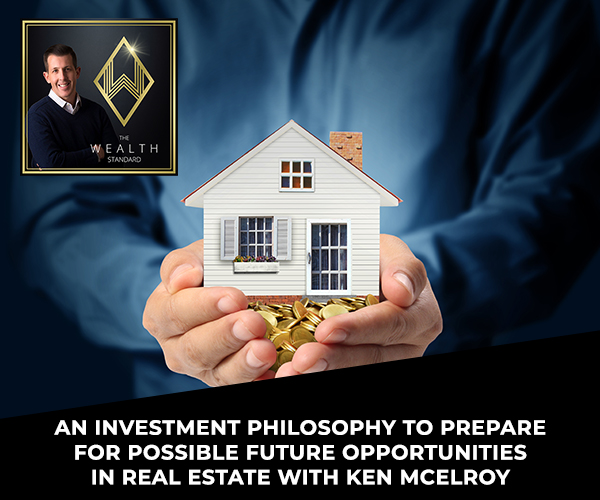







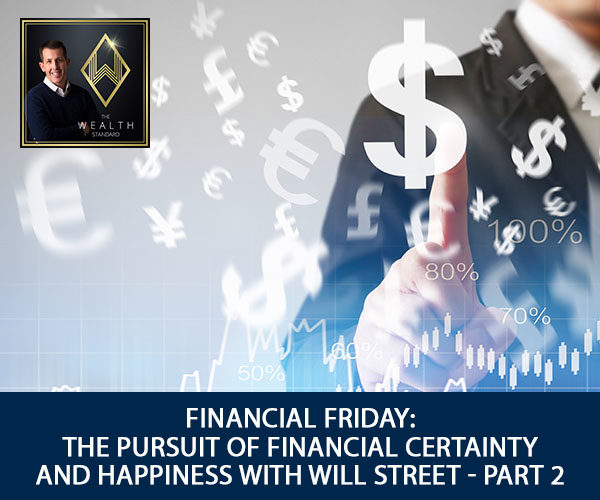
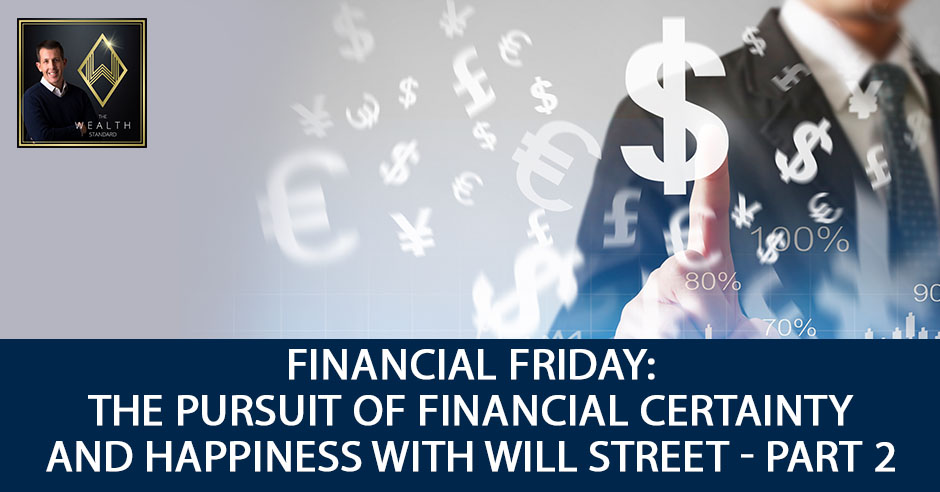


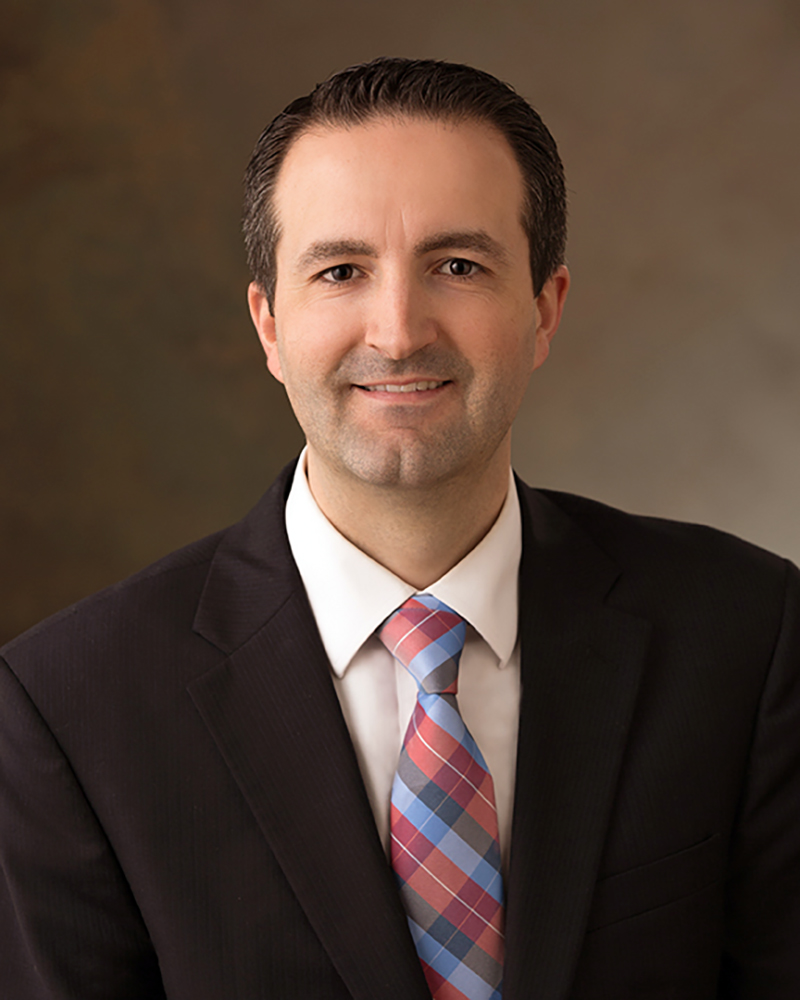
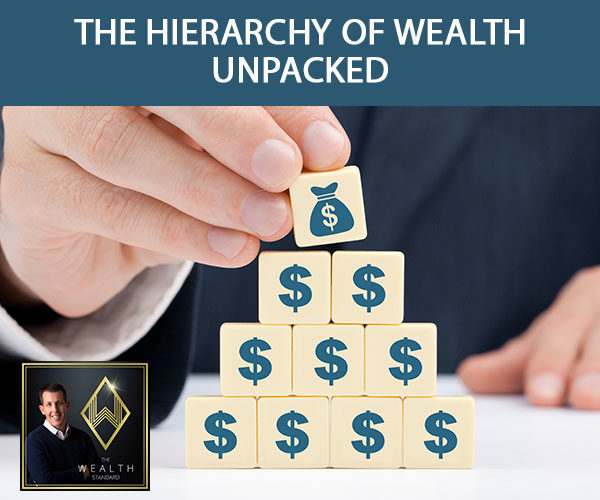
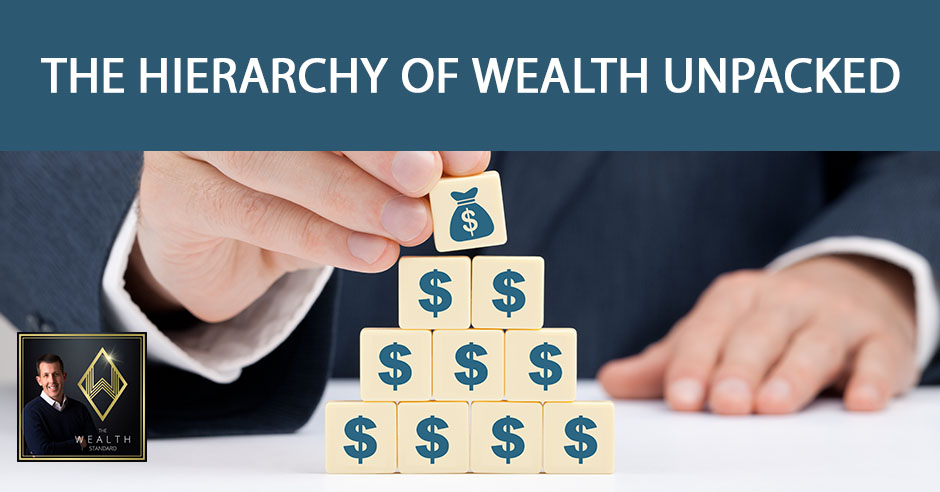
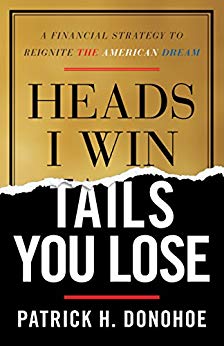



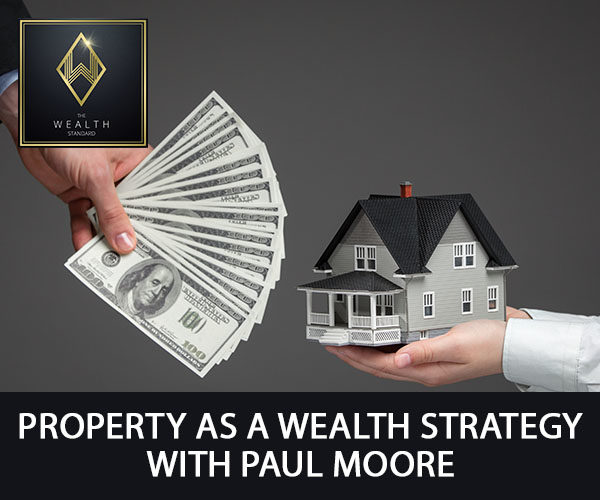
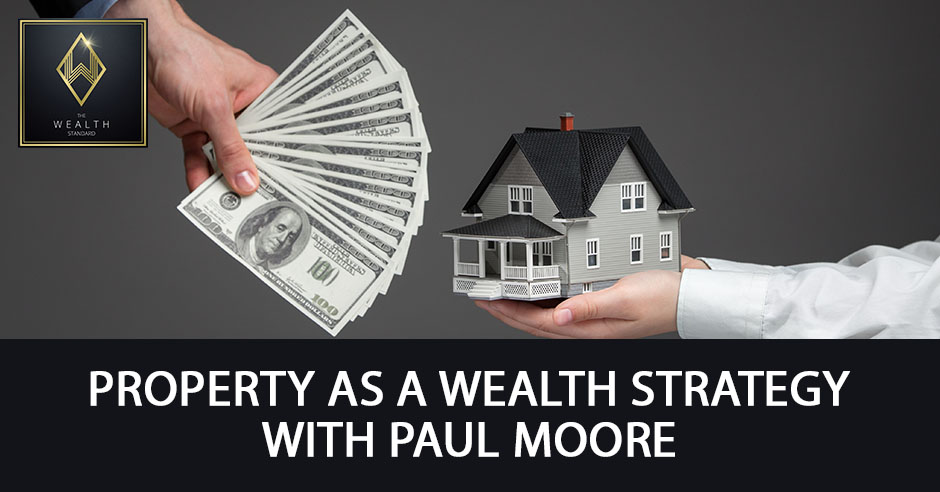
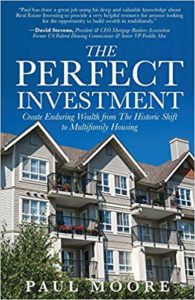



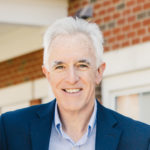 An expert in the real estate space, Paul Moore of Wellings Capital graduated with an MBA from Ohio State and entered the management development track at Ford Motor Company. After five years, he departed to start a staffing company with a partner. They sold it to a publicly traded firm five years later for $2.9 million.
An expert in the real estate space, Paul Moore of Wellings Capital graduated with an MBA from Ohio State and entered the management development track at Ford Motor Company. After five years, he departed to start a staffing company with a partner. They sold it to a publicly traded firm five years later for $2.9 million.













